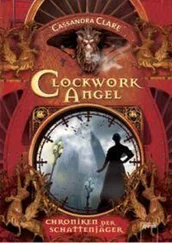Leopard however raised his head and looked at the newcomer.
“I am he. But she is not a bitch. She is beautiful, and by me beloved, and will be so until the day of my ending.”
“Very well,” agreed the philosopher, if so he was. “Very well. Maybe she is a bitch since only circumstances have made her one. As also time has made her older and fatter. But I think a snake gave her such cold eyes.”
Leopard lowered his gaze. He did not reply.
The philosopher went on, in his clear and reasonable voice, “Surely you, or some of you here at the very least, must understand why men venerate and think such a creature wonderful?”
A man cried out: “Because she is The Woman .”
“Just so,” said the philosopher. “The only woman. That is,” he amended, “the only known woman yet living in our city, or in the existing world, who has not yet died of the excessive bearing of male children, or grown into an ancient hag.” A vast sigh, nearly a groan, curdled from the room-full of men. It passed on into the courtyard, where the other men had, many of them, risen and come to see who spoke such words. It drifted up to balconies of the wine-house and surrounding buildings, and was echoed back from them. It fled along the white streets and found some kind of other echo always there, in every masculine throat, in every masculine mind. For there were only men in the Crimson City, as the philosopher had stated. Men who were feminine or men who were male, and some who were gifted with both states, and those who were young or old. Or there were a few old, old women who had somehow survived relentless decades of child-bearing, scorned and sworn at on every occasion, which had been by now every occasion without exception, that they had produced, rather than a daughter, yet another son.
Beyond the Crimson City, did the curdling echo of the groan strike out even there, like a cold fist beating on the surface of a cold metal gong, and the reverberation unfurling, on and on? Probably so. For in all the land about, in the towns and villages, in the farthest places, still there were only the differing types of men, male men and female men, or men of both persuasions, and young men, and old men, and dead men in graves with death-stones over them like white fallen pieces of the lonely masculine moon.
And even the hags maybe heard the sigh, the groan. Even the dead women in their own graves that bore each the symbol of the barren blazing sun, the dead women burned away by bearing only men.
While outside the borders of this land, the other lands. All the same. All, all, the same.
For some years ago, about the time that the mother of Leopard and Copper Coin had herself died, the very last of all the women yet able to conceive a child, had perished.
With the last of such deaths, all chance of change died too.
And now there were only the men and the hags. And the female sun. And She. The Woman in the Palace.
* * *
When Copper tore down the stair, Prince Ninety-Two deserted above in the upper rooms, it was Tomorrow who ran quickly and caught hold of him.
“Stay, Copper—stay, stay—look there. Do you see?” And Copper halted, and his pale face went more pale and his eyes widened.
For there Leopard was, held in the arms of an unknown newcomer to the house, a man neither old nor young, but handsome and well-dressed, perhaps a philosopher, and with an actor’s voice. Leopard was weeping his heart out as since returning here he had not wept. And the philosopher raised his face and glancing at Copper said, softly, “Don’t fear it. I am his brother too, his brother in this most bleak of miseries. For I also, long before, was a finalist in the Crimson City. I also won The Woman, lay with her, lost her, failed at the Ultimate Test. A man who wandered in an earthly hell some while. But sense came back to me, and that hell faded. I lived. As Leopard may live. There is more to life than love. I am the proof, am I not, that not all men die who fail with her.”
Copper felt his heart clutch, as if a dagger had gone into it. For he sensed that here at last might be the single other man in all the world who could give back to Leopard a reason for existence. And passionate hope had stabbed at Copper’s heart, and bitter envy had cloven it.
“Do what you must,” said Copper. And offered the stranger his most beautiful and generous smile.
Then he kissed his brother on one temple, and left him in the keeping of the unknown man. And in the hands of the gods too, where all things may lie, whether they wish it or not.
High above the terraced streets, the squares and courtyards and gardens, The Woman stood in a long room without a single window, lit only by tall lamps in the shape of flowers. She wore a plain garment, her hair tied back in a knot. She was barefoot on the cool painted floor. Once pink birds had sung here. But one day she had opened a door and let them go free. They had never entirely forsaken her. They still flew about the upper arches and nested in the roofs. How wonderful, she had always thought, The Woman, their magical power of flight.
* * *
How old was she when first they brought her here? Quite young, she believed. Five, seven?
She had never been certain of her age.
She was the first and last daughter of a peasant woman called This Fern.
This Fern had birthed The Woman, and been made the heroine of her village, for only recently that year the otherwise last known female child, a girl of eleven years, had died in the far north, of stomach trouble.
But This Fern also soon died, after a bear attacked her at the edge of the forest. Everyone hunted the bear, to kill it, but it was gone, and so of course was This Fern. The Woman had only been two years old then. She could not remember her mother, though they had given her her mother’s possessions, her festival robe and her festival shoes, her wooden comb and earrings of tin, and one of her teeth, which had been knocked from her mouth ages before and preserved in a small black box.
These artifacts The Woman still possessed. Now she kept them in a chest of carved and perfumed cedar-wood inlaid with silver, and with a ruby on its clasp.
* * *
Men in authority had brought The Woman to the Crimson City. In the Palace she was trained, vigorously and often unkindly, to be a woman. That is, an important woman. That is, The Only Woman.
When, at the age of fifteen, she had fallen in love, or fancied she had done so, with one of her malely inclined tutors, he was beaten almost to death and exiled from the city.
His own feelings she never learned.
Probably he was as crazily infatuated as she.
But she was never sure, nor if he recovered from the beating and the exile.
At sixteen she began to be shown in the city.
Then, seeing young men sometimes of extraordinary attractions, gazing at, or fainting at the sight of her, she herself often lost her heart.
But she had been thoroughly lessoned by then in her role, and theirs. Since seemingly—and soon irrevocably and definitely—she was the last young human of her gender—only those with the highest qualities of looks and skills would ever be allowed to approach her.
During this era, The Woman still had one female attendant, a hag who had been almost seventy when The Woman first met her.
The hag, Ochre, was never very polite and never pleasant to her charge, let alone affectionate. The Woman supposed Ochre had been selected for her unappealing acidity because, after all, Ochre was ancient, all of her kind were by then, and must soon die. Bereavement of her would therefore be less distressing.
But the hag was presently caught anyway mixing ground glass into The Woman’s food.
Читать дальше












